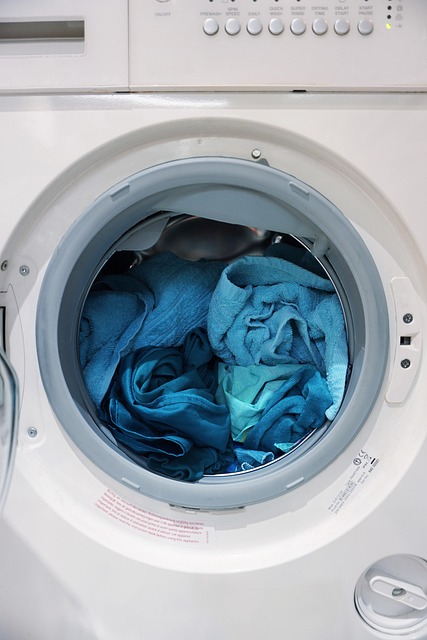Smart water monitoring systems use sensors and analytics to optimize water usage, reduce waste, and lower costs by identifying leaks and inefficiencies. Integrating sustainable materials like biodegradable hardware and efficient fixtures further promotes environmental stewardship, aiming for a greener future through technology and ecological preservation.
“Smart water monitoring systems are transforming the way we manage this precious resource. By installing these innovative technologies, homeowners and businesses can join the global move towards sustainable water management. This article explores the benefits of adopting eco-friendly practices, from reducing water waste to choosing sustainable installation methods. We’ll delve into integrating nature with technology, ensuring a harmonious approach. Discover how intelligent design can minimize water usage, all while promoting environmental stewardship using sustainable materials.”
- Understanding Smart Water Monitoring Systems
- Benefits of Sustainable Water Management
- Choosing Eco-Friendly Installation Methods
- Integrating Technology with Nature
- Reducing Water Usage through Intelligent Design
Understanding Smart Water Monitoring Systems

Smart water monitoring systems are innovative technologies designed to optimize and conserve water usage. These systems employ advanced sensors, data analytics, and real-time monitoring to track water consumption patterns, detect leaks, and provide insights into water distribution networks. By understanding water flow, pressure, temperature, and other critical parameters, these smart solutions enable users to make informed decisions about their water management practices.
One of the key advantages lies in their potential to promote sustainable materials and practices. With intelligent data collection, these systems can identify areas where water is being wasted due to leaks or inefficient use. This knowledge empowers homeowners, businesses, and municipalities to implement targeted conservation measures, ensuring responsible water stewardship while potentially reducing costs associated with water wastage.
Benefits of Sustainable Water Management

Implementing smart water monitoring systems offers a multitude of benefits, especially in the realm of sustainable water management. By integrating technology into water infrastructure, businesses and households can gain real-time insights into their water usage patterns, enabling them to make informed decisions. This knowledge is pivotal for adopting more sustainable practices and promoting responsible water consumption.
Sustainable water management focuses on conserving resources, reducing waste, and utilizing sustainable materials. Smart monitoring systems play a key role in achieving these goals by identifying leaks, optimizing irrigation schedules, and detecting abnormal usage patterns. It helps prevent water wastage, ensuring every drop is utilized efficiently. Moreover, it encourages a culture of environmental stewardship, as users become more conscious of their impact on local water resources.
Choosing Eco-Friendly Installation Methods

When it comes to installing smart water monitoring systems, opting for eco-friendly methods can significantly reduce your environmental impact. One way to achieve this is by utilizing sustainable materials throughout the process. For instance, choosing biodegradable or recycled components for your hardware and wiring not only minimizes waste but also aligns with a commitment to ecological preservation.
Additionally, employing local and renewable energy sources to power these systems can further enhance their green credentials. Solar panels, for example, provide an abundant and clean energy alternative, ensuring that your water monitoring infrastructure contributes positively to a greener future.
Integrating Technology with Nature

In the pursuit of sustainable living, integrating technology with nature is becoming increasingly vital. Smart water monitoring systems exemplify this harmonious blend, offering innovative solutions to manage our most precious resource efficiently. These systems utilize advanced sensors and IoT (Internet of Things) technology to track water usage in real-time, providing homeowners and businesses with valuable insights into their consumption patterns.
By harnessing data from these connected devices, users can identify leaks, optimize irrigation schedules, and reduce overall water waste. Moreover, the adoption of sustainable materials in these systems further reinforces our commitment to environmental stewardship. From eco-friendly sensors to recycled components, these innovations demonstrate that technology and nature can work hand-in-hand to create a more resilient and ecologically sound future.
Reducing Water Usage through Intelligent Design

Reducing water usage has become a critical aspect of sustainability, and intelligent design plays a pivotal role in this endeavor. Smart water monitoring systems offer a modern solution by providing real-time data on water consumption patterns, enabling homeowners and businesses to make informed decisions. These systems detect leaks, measure flow rates, and track water usage across different fixtures, helping users identify areas for improvement.
One significant way to reduce water consumption is through the integration of sustainable materials and technologies. For example, smart toilets equipped with dual-flush mechanisms use less water for liquid waste compared to traditional models. Efficient showerheads and faucets also contribute to water conservation by reducing flow rates without compromising user experience. By embracing these intelligent designs, we can significantly decrease our water footprint and move towards a more sustainable future.
